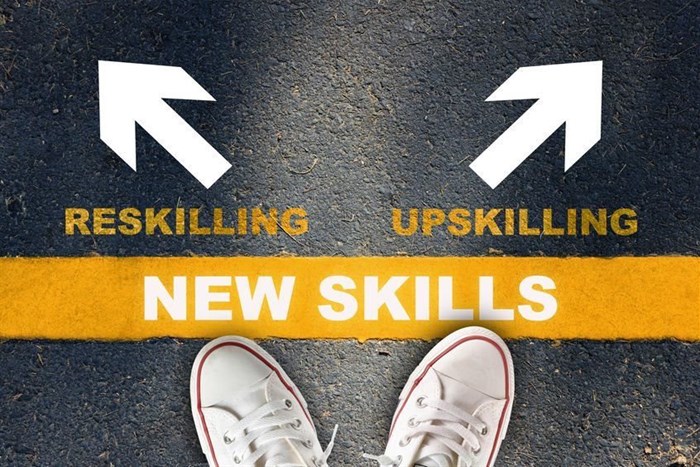Though the terms are close cousins, there are significant differences between upskilling and reskilling in the corporate world, and it's crucial to set them apart when developing your online training and e-learning programmes as they have unique objectives. While upskilling means learning new skills and competencies, reskilling involves a shift in career trajectory. For example, an employee may need to reskill if they switch departments or take on new responsibilities.
Here’s a deep dive into the differences and how they can both be an advantage to nurturing a culture of continuous development in your organisation.
- Employee promotion
One of your top performers is promoted and needs to be prepared for whatever challenges might come their way in their new role. This is an example of upskilling, as the employee already possesses the foundational skills, and most likely why they were selected for the promotion in the first place. An e-learning content capsule that builds on their skills and gives them the tools and insights to face new challenges will set your newly promoted employee up for success.
- New developments in your organisation
Reskilling is also required when employees, who already have core competencies, require some additional skills to keep up with industry or organisational changes. For example, you've transitioned to remote working and all staff need to learn new processes or protocols. An engaging and interactive content capsule that reskills your teams at various levels will assist.
- Employees need to master new skills
You've added additional tasks to an employee or department, that calls for new skills to be successful. In most cases, a reskilling e-learning programme will assist, especially when new tasks have some overlap with the existing, such as new follow-up procedures or additional steps to their existing processes. A reskilling content capsule added onto their existing e-learning courses will get them up to date.
- Compliance policies change
Fresh compliance regulations or company policies are other areas that highlight the reskilling and upskilling difference. Employees need to review related skills to avoid breaches. If these new rules involve significant change, and the need to break old habits, then reskilling is the best strategy. Should new competences or responsibilities that fall outside their current professional purview be needed, then upskilling is required.
- Deploying employees to other departments
Sometimes an employee’s expertise is not aligned with their current responsibilities, in which case, a reskilling programme can shift their professional focus to another related department. Such employees may still be valuable members to your organisation, but their experience and insights can be of greater benefit in other areas. These employees will need to reskill and take a new course on your e-learning programme.
- Automation shakes things up
Upskilling assists with infrastructural or procedural changes, such as when advances in technology force you to rethink your current approach and adopt new software or tools to streamline productivity. When manual work is reduced, employees will be required to learn and adjust their skills and competencies. This may involve a steep learning curve, such as figuring out how to use new tech platforms or operate new machinery to stay compliant. This is a form of upskilling and additional content capsule added to existing e-learning courses will do the job.
- Downsizing can widen the talent gap
Downsizing your organisation is never easy as you often have to let go of valued members, which means that others have to fill in the gaps. This calls for both reskilling and upskilling, as some employees may have to learn new skills or cross-train in other departments. Likewise, employees with strong leadership capabilities need to learn new skills to bolster their current expertise and continue to lead the way.
- New recruits need new skills
You've just onboarded an amazing new employee who has all the right skills and real-world experience but lack certain experience that would make them an even more valued member of the team. For example, your new team member has strong communication and interpersonal skills, they know your product and service offering, but they’re missing certain skills to close deals. You need to broaden their existing skills with effective upskilling e-learning courses so that they're able to hit their quarterly targets with ease.
To reskill or upskill, that is the question
Every organisation should consider a hybrid approach based on employees’ expectations, needs, and skills gaps and the rate at which your organisation is growing, or plans to grow. Remember, it’s always best to have the skills in place before rapid growth. Plan for the best and upskill for the better, that way you’re always ready, and your employees are poised for the changes and challenges of your fast-paced industry.
HR often focuses on improving or upskilling to maximise internal talent and reduce turnover. But reskilling is just as crucial for long-term business success, as it gives you the opportunity to fill positions with your top performers and adapt to industry changes at a winning pace. In short, an upskilling and reskilling e-learning programme allows your organisation to continually evolve and rise to emerging challenges.
During your planning process, be sure to use a platform that can be deployed to both upskill and reskill as required and makes learning fun and effective, via gamification, interactivity, certifications, and robust tracking to help you foster a culture of continuous learning across all stakeholder and levels of your business.









































